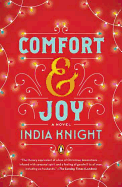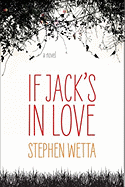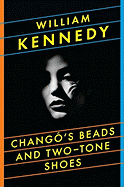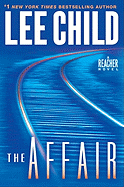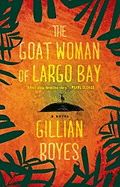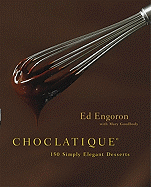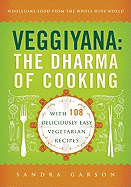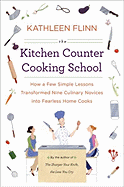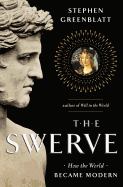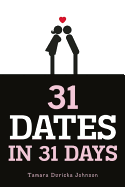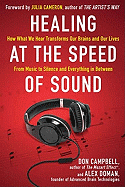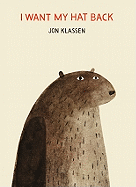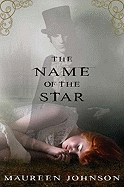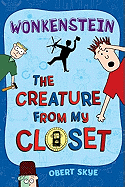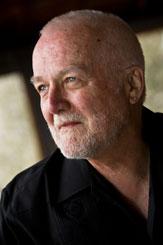 The last novel Russell Banks wrote, The Reserve, was set high in the Adirondacks. His new book, The Lost Memory of Skin (Ecco Press), takes place in Fort Lauderdale and its environs. "That experience is close to my actual life, really," Banks said. "I spend six months a year close to the Canadian border, and the other six months at the southernmost bit of Florida. This geographical bipolarity is part of the continuum for me."
The last novel Russell Banks wrote, The Reserve, was set high in the Adirondacks. His new book, The Lost Memory of Skin (Ecco Press), takes place in Fort Lauderdale and its environs. "That experience is close to my actual life, really," Banks said. "I spend six months a year close to the Canadian border, and the other six months at the southernmost bit of Florida. This geographical bipolarity is part of the continuum for me."
However, location isn't the only thing that sets these two novels far apart. While The Reserve was a lush examination of a bygone age among America's rich and careless, The Lost Memory of Skin is a stark look at today's poor and homeless. Banks's long novel follows a character named "the Kid," whom we know from the outset is a sexual offender. While we soon learn that the Kid's crime involved an encounter with a 14-year-old when he was 19, and that he nonetheless remains a virgin, his conviction, jail time and probation requirements turn him into as much a pariah as the most unrepentant pedophiles. This novel isn't an easy, light read.
It wasn't an easy book to market, either, according to Banks. "I wasn't worried about it when I was writing, of course, because the important standard for the writer is what's interesting to the writer in that process. However, the jacket copy for the book was originally soft-pedaled by my publisher, and I called them on it." The author urged them to "go right out front" with a subject that may be taboo, but is also one that many people are interested in. "People are engaged enough in the world and they sense that there is something deeply amiss with the culture of our erotic lives," he said. "You have to trust the reader. I've always assumed that my readers are as serious about the world as I am, and that those who aren't won't read my work anyway."
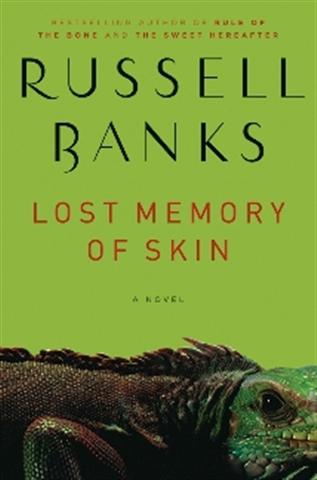 The author recalled the genesis of this book: "I have a place in Miami, and there had been several articles about the community of homeless men who live under the Causeway there, and how so many homeless men in the United States are registered sex offenders. I can see that Causeway from my terrace. One day I was sitting out on my terrace, drinking wine and smoking a cigar and I thought--that's really interesting. Not just interesting, but completely different from me and my life."
The author recalled the genesis of this book: "I have a place in Miami, and there had been several articles about the community of homeless men who live under the Causeway there, and how so many homeless men in the United States are registered sex offenders. I can see that Causeway from my terrace. One day I was sitting out on my terrace, drinking wine and smoking a cigar and I thought--that's really interesting. Not just interesting, but completely different from me and my life."
The title came a bit later, after he'd already started to work on the story. "It was the only one I ever considered for this book, which is very unusual, because I usually have dozens. It came in a flash. I already knew that my book was about the digitization of erotic life and the dissolving of the sharp line between fantasy and reality. I was in Paris for the release of my last book there and sitting in a cafe with my publicist when a truck went by with an ad for a TV show called The Memory of Lost Skin. I thought, that's it! I'll switch it around."
The title's significance has nearly as many layers as human skin, from figurative--the Kid's lack of early protection from his hapless mother--to literal: the Professor's (his other main character) morbidly obese form. "There are so many ways that we have failed that deep, ancient, species-deep responsibility to protect children from the amoral forces of the universe," Banks said.
What can we do, especially when there are real predators out there, like his character Lawrence Somerset, a former senator who winds up sleeping under the Causeway after a stint in the federal penitentiary for soliciting children to come to his hotel room? "That's a toughie. I've been thinking about it a lot lately as the book is published. It's such an unnatural universe that we've created for ourselves. And we have so little memory of anything having been different. I'm 71, so I have a memory of the 1940s and 1950s. The world really was different then; I think I lived through a historical experience that was closer to the last 100,000 years than it is to the past 30 years. The things that have occurred in our culture and around the world go so anthropologically deep that it's almost as if the species has undergone some biological alteration.
Banks believes that our consumer- and material-driven culture has played too long with the "trivialization of the erotic." "Where are those guys like Mailer and Lawrence and Nin, the ones who understood that sex is really dangerous--not necessarily harmful, but filled with power?" he wonders. In writing about such dark yet real desires, Banks said, he knew that he wanted to write in a slightly different way. "I didn't want to write a social realist novel like Tom Wolfe, or even, for that matter, Balzac," he said. "I wanted to be free to use my imagination like Toni Morrison does. I knew I was moving away from the conventions of realism and pushing towards the quality of a fable, or a myth. That's why he's the Kid and his foil is the Professor."
By the end of the book, readers will learn that the Kid's choices are bleak but perhaps somehow offer a glimmer of hope. "He's choosing something instead of it simply being thrust upon him," Banks said. He added that his next work will be "a romantic love story. I know, I know--I'm the guy who started a novel with a schoolbus accident. I don't know if I can pull it off, either. But I'm going to try." --Bethanne Patrick
Russell Banks photo by Nancie Battaglia
Portrait of the Artist: Russell Banks
 At the same time, it's easy to fear Fire. That's because Amazon uses proprietary systems and formats for all its e-reader devices, which means that if you own a Kindle or a Fire, you have to buy all your e-books from Amazon. (In addition, the Fire operates in a way that allows Amazon to collect all kinds of information about how and where users browse and buy online.)
At the same time, it's easy to fear Fire. That's because Amazon uses proprietary systems and formats for all its e-reader devices, which means that if you own a Kindle or a Fire, you have to buy all your e-books from Amazon. (In addition, the Fire operates in a way that allows Amazon to collect all kinds of information about how and where users browse and buy online.)


 The last novel Russell Banks wrote, The Reserve, was set high in the Adirondacks. His new book,
The last novel Russell Banks wrote, The Reserve, was set high in the Adirondacks. His new book,  The author recalled the genesis of this book: "I have a place in Miami, and there had been several articles about the community of homeless men who live under the Causeway there, and how so many homeless men in the United States are registered sex offenders. I can see that Causeway from my terrace. One day I was sitting out on my terrace, drinking wine and smoking a cigar and I thought--that's really interesting. Not just interesting, but completely different from me and my life."
The author recalled the genesis of this book: "I have a place in Miami, and there had been several articles about the community of homeless men who live under the Causeway there, and how so many homeless men in the United States are registered sex offenders. I can see that Causeway from my terrace. One day I was sitting out on my terrace, drinking wine and smoking a cigar and I thought--that's really interesting. Not just interesting, but completely different from me and my life."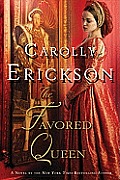 This issue's Further Reading is fairly straightforward in concept, because the lead title's subjects are endlessly fascinating: Jane Seymour and her royal spouse, Henry VIII of England, who make their latest fictional appearance in Carolly Erickson's The Favored Queen: A Novel of Henry VIII's Third Wife (St. Martin's).
This issue's Further Reading is fairly straightforward in concept, because the lead title's subjects are endlessly fascinating: Jane Seymour and her royal spouse, Henry VIII of England, who make their latest fictional appearance in Carolly Erickson's The Favored Queen: A Novel of Henry VIII's Third Wife (St. Martin's).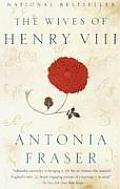 Nearly 20 years ago, Lady Antonia Fraser published a scholarly and detailed look at Henry VIII and his wives that was one of the first to consider that sad sorority in a feminist light. The Wives of Henry VIII considers each Tudor queen separately and shows that they were dynamic women in their own right, not simply as a result of their titled marriages.
Nearly 20 years ago, Lady Antonia Fraser published a scholarly and detailed look at Henry VIII and his wives that was one of the first to consider that sad sorority in a feminist light. The Wives of Henry VIII considers each Tudor queen separately and shows that they were dynamic women in their own right, not simply as a result of their titled marriages.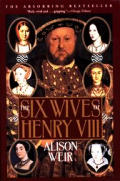 Alison Weir's The Six Wives of Henry VIII includes a great deal of good academic research, but also hints at her later and continuing success in writing novels (including Innocent Traitor, also about Lady Jane) due to its engaging tone and anecdotally rich approach to Henry VIII himself and how his character and life stages affected what--and who--he wanted.
Alison Weir's The Six Wives of Henry VIII includes a great deal of good academic research, but also hints at her later and continuing success in writing novels (including Innocent Traitor, also about Lady Jane) due to its engaging tone and anecdotally rich approach to Henry VIII himself and how his character and life stages affected what--and who--he wanted.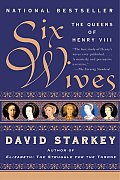 Like its titled subjects, David Starkey's Six Wives: The Queens of Henry VIII wears the royal purple. Starkey is a British constitutional historian who has written extensively on the Tudors, and his take on Henry's multiple marriages focuses less on the ladies involved and more on the heir-hungry king's search for happiness. That may sound frivolous--but not when it's backed up an executioner's axe.
Like its titled subjects, David Starkey's Six Wives: The Queens of Henry VIII wears the royal purple. Starkey is a British constitutional historian who has written extensively on the Tudors, and his take on Henry's multiple marriages focuses less on the ladies involved and more on the heir-hungry king's search for happiness. That may sound frivolous--but not when it's backed up an executioner's axe.